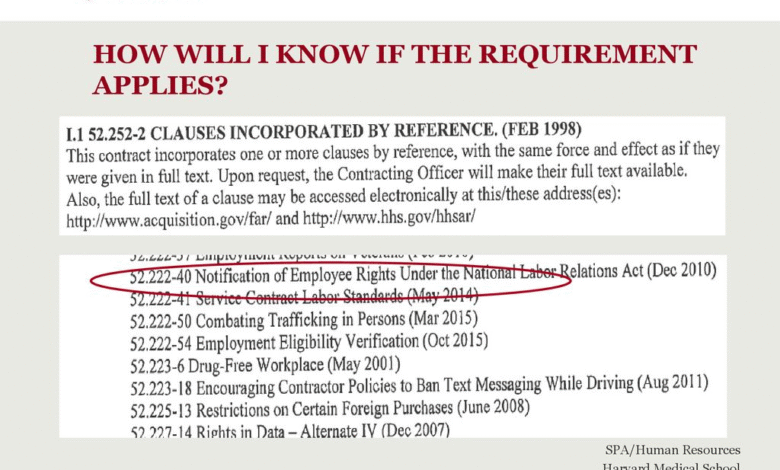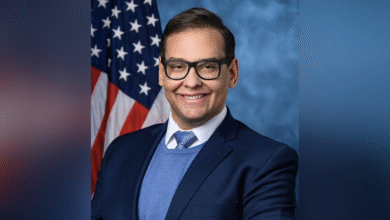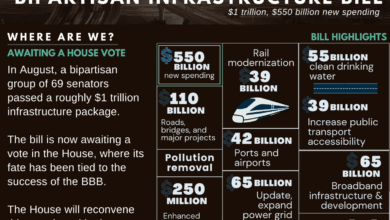Harvard Federal Contracts Cut by Trump Administration

Harvard federal contracts have come under intense scrutiny as the Trump administration moves to terminate all remaining agreements valued at approximately $100 million. This bold initiative stems from allegations that Harvard University engages in race discrimination in its admissions policies and campus practices. In a letter from the U.S. General Services Administration (GSA), officials emphasized the institution’s failure to comply with federal standards and asserted the need to protect taxpayer funds by ensuring contracts are awarded to compliant entities. Previously, Harvard faced limitations on enrolling international students, which a federal judge temporarily blocked, yet the fallout from these policies continues to affect its financial and operational landscape. As this situation unfolds, it raises significant questions regarding the intersection of federal funding, university governance, and the implications of diversity and inclusion practices.
The ongoing issue surrounding Harvard’s contracts with the federal government reflects a larger debate about academic freedom and compliance with federal regulations. Recently, efforts by the Trump administration to sever ties with the prestigious institution highlight controversies over race-related policies within higher education. These developments have broad implications, affecting not just federal grants but also the enrollment of international scholars who contribute to the university’s diverse academic community. As legal battles emerge, the future of federal support for prominent universities like Harvard hangs in the balance, presenting a critical moment for educational institutions across the nation. Understanding the intricacies of such federal relations is vital for those engaged with public policy and university affairs.
Impact of Trump Administration Policies on Harvard Federal Contracts
The recent decision by the Trump administration to cut all federal contracts with Harvard University represents a significant shift in federal educational policy. Essentially valued at around $100 million, these federal contracts are critical for funding various university initiatives and research programs. By asserting that Harvard engages in “race discrimination,” the administration is not only challenging the university’s admissions policies but is also signaling a broader attempt to enforce federal standards across all institutions of higher education. This action underlines the ongoing tensions between federal authorities and universities that prioritize diversity and inclusion.
Moreover, the termination of these federal contracts is set against the backdrop of a larger legal and financial battle. Harvard has faced scrutiny for its diversity initiatives, which the Trump administration views as discriminatory against certain groups. The ramifications of this new policy extend beyond mere contract termination; they threaten the very foundation of Harvard’s funding and operational capabilities. With federal grants and contracts increasingly entwined with compliance to political mandates, this shift could set a precedent affecting universities nationwide.
Harvard’s Legal Challenges Amidst Federal Scrutiny
In the wake of the Trump administration’s actions, Harvard University has found itself at the center of a multifaceted legal struggle. Shortly after being prohibited from enrolling international students—an action temporarily halted by a Boston judge—Harvard initiated a lawsuit against the administration. The university argues that the federal government’s efforts to enforce compliance with its political beliefs infringe upon academic freedom and undermine the institution’s mission to promote inclusivity in education.
The juxtaposition of Harvard’s legal efforts against federal restrictions illustrates a significant conflict between institutional ideals and political pressures. The lawsuit claims that the university’s practices do not constitute race discrimination and emphasizes the importance of diversity in an increasingly globalized society. As Harvard navigates these challenges, the outcome could have profound implications not just for the institution, but also for higher education policies at large.
The Role of Federal Grants in Harvard’s Financial Ecosystem
Federal grants play a crucial role in sustaining Harvard University’s expansive educational offerings and research capabilities. Last month, the Trump administration’s decision to withhold $2.2 billion in federal grants highlighted the financial vulnerability that accompanies such a reliance on government funding. This financial strain not only impacts operational budgets but also has repercussions on faculty positions, research projects, and critical programs that rely on external funding to thrive.
Given the shifting political landscape, Harvard must now reevaluate its funding strategies and seek alternative sources of revenue. The potential reallocation of funds, as suggested by President Trump, could diminish federal support for prestigious institutions in favor of trade schools and vocational programs. This approach could challenge long-standing paradigms of higher education funding and further complicate the landscape for elite universities that traditionally receive substantial federal assistance.
The Implications of Race Discrimination Claims on Higher Education Policies
The assertion from the Trump administration that Harvard continues to engage in race discrimination is a clarion call for reevaluation of higher education admission policies nationwide. This claim not only casts a shadow over Harvard’s practices but also ignites a national conversation about the role of race in college admissions and educational opportunities. Critics argue that such accusations threaten the very foundations of affirmative action and diversity initiatives that many universities have implemented to combat systemic inequities.
As this debate continues to unfold, institutions across the country may find themselves pressured to reassess their policies in light of potential federal repercussions. The broader implications of these claims could lead to significant changes in how universities approach diversity and inclusion, as institutions may be compelled to align their practices with federal standards to secure funding and contracts. The future of these policies remains uncertain as educational leaders and policymakers grapple with the inherent complexities of race and admission processes.
Harvard University and International Students: A Legal Highwire Act
Harvard’s recent struggles regarding international student enrollment exemplify the complex legal terrain that universities navigate amidst political turmoil. Following the Trump administration’s unilateral move to restrict international student admissions, Harvard quickly positioned itself legally by challenging this ban in court. The temporary injunction issued by a federal judge in Boston provides a glimmer of hope amid an otherwise tumultuous landscape for international scholars seeking education in the United States.
This situation underscores the crucial role that international students play in the fabric of American higher education—contributing not only to the academic diversity but also to the financial stability of institutions like Harvard. As they often pay higher tuition rates, the presence of international students is vital for sustaining various university programs. Therefore, Harvard’s ongoing legal battle will have implications for international scholars nationwide and could shape the future policies affecting global mobility in education.
The Political Ramifications of Harvard’s Federal Funding Cuts
The political ramifications of the Trump’s administration’s moves against Harvard University extend beyond mere funding disputes; they represent a broader ideological battle over education in America. By targeting one of the nation’s most prestigious institutions, the administration aims to set an example for other universities regarding compliance with federal policies, especially in regard to issues of race and diversity. This strategy may resonate with segments of the political base that find merit in a more rigid approach to educational equity.
Furthermore, the targeting of federal funds illuminates the delicate balance that universities must maintain between adhering to educational missions and responding to political pressures. Critics have pointed out that such tactics could lead to a chilling effect on academic freedom and discourage institutions from pursuing diverse recruitment strategies. Observers will be keenly watching for how Harvard’s experiences shape the future landscape of federal funding for higher education and whether it emboldens other institutions to stand firm under similar pressures.
Harvard’s Response to Retaliatory Federal Actions
In response to federal actions aimed at terminating its funding and contracts, Harvard University has adopted a stance of resilience and legal defiance. The university’s leadership has expressed a commitment to preserving its values of diversity, inclusion, and academic freedom, framing the attacks as politically motivated rather than based on any real issues of race discrimination. By pursuing a legal challenge against the Trump administration, Harvard seeks to assert its autonomy and safeguard its mission amidst external pressures.
This strategic legal battle not only serves as a defense for Harvard but also signals to other educational institutions that standing up against federal overreach is essential. As the university rallies support from faculty, students, and alumni alike, the implications of its actions may well extend beyond its walls, inspiring other universities to take a stand in defense of their principles. The outcome of this conflict is likely to influence educational policies and governance across the higher education landscape.
Future of Higher Education Funding Post-Trump Administration
As we look toward the future of higher education funding in a post-Trump administrative landscape, significant shifts are anticipated. With the recent legal battles surrounding federal contracts and the scrutiny applied to funding based on diversity policies, universities are poised to adjust how they approach external financial support. The tension between government funding and institutional autonomy could lead to fundamental changes in educational funding models, particularly for universities with a strong commitment to diversity and academic freedom.
In the aftermath of the Trump administration’s departure, institutions will likely seek greater independence from federal funding streams, exploring new avenues for financial support that align more closely with their values and missions. This may include enhanced fundraising efforts, increased partnerships with private organizations, or greater investment in state-level educational initiatives. As universities reassess their financial strategies, the evolving political environment will undoubtedly shape the landscape of American higher education.
Conclusion: The Future of Harvard Amidst Federal Tensions
The ongoing tensions between Harvard University and the Trump administration highlight critical issues that will define the future of higher education in America. As the university navigates the complexities of federal contracts, funding cuts, and allegations of race discrimination, its responses could set important precedents for how institutions engage with government entities. The legal battles ahead will be crucial in carving out the space for academic freedom and establishing the rights of universities to uphold their missions amid political pressures.
Ultimately, Harvard’s experience may serve as a bellwether for other educational institutions grappling with similar issues of funding and compliance. The outcome of these conflicts will influence not only Harvard’s future but could also redefine the landscape of higher education funding and policies across the nation, emphasizing the importance of advocacy for the principles of inclusion and diversity as cornerstone values of American education.
Frequently Asked Questions
What implications do Harvard federal contracts have under the Trump administration’s policies?
Under the Trump administration, Harvard federal contracts have come under scrutiny, leading to intentions to terminate all remaining contracts valued at around $100 million. This was motivated by allegations of race discrimination in Harvard University’s admissions process and campus life, reflecting a broader conflict regarding federal funding and compliance with anti-discrimination laws.
How has the Trump administration’s stance affected federal grants to Harvard University?
The Trump administration has withheld $2.2 billion in federal grants to Harvard University as a response to the institution’s refusal to dismantle diversity and inclusion programs. This action highlights the government’s power to influence funding based on compliance with its ideological expectations, which has major implications for federal contracts and grants.
What legal actions has Harvard University taken regarding the Trump administration’s federal contract decisions?
Harvard University has filed lawsuits against the Trump administration, specifically regarding the ban on enrolling international students. These legal challenges aim to protect the university’s federal contracts and ensure the continuation of funding while contesting the motives behind the removal of federal grants.
How do race discrimination claims impact Harvard’s federal contracts?
Claims of race discrimination in Harvard’s admissions processes have directly impacted its federal contracts. The U.S. General Services Administration stated that engaging with the federal government requires adherence to non-discrimination principles, suggesting that Harvard’s practices pose a risk to its funding and contracts.
Why are international students a significant topic in discussions about Harvard federal contracts?
International students are central to discussions about Harvard federal contracts due to the Trump administration’s attempt to ban their enrollment, which, if enacted, could jeopardize the university’s federal funding and contracts. The intersection of immigration policy and educational funding has sparked legal actions that further complicate the university’s relationship with federal grants.
What should Harvard federal contract stakeholders understand about the current political climate?
Stakeholders in Harvard federal contracts need to understand the current political climate under the Trump administration, which is characterized by increased scrutiny over race discrimination claims and stringent immigration policies. This environment poses significant risks to federal funding and requires careful management of compliance with federal laws.
How is Harvard University’s funding affected by its compliance with federal policies?
Harvard University’s funding is intricately tied to its compliance with federal policies, particularly those relating to non-discrimination and diversity initiatives. Non-compliance can lead to a loss of federal contracts and grants, highlighting the essential need for alignment with federal expectations to secure financial support.
Can Harvard’s legal challenges alter its federal contract situation?
Yes, Harvard’s legal challenges against the Trump administration’s policies regarding federal contracts may alter its situation. Successful litigation could reinstate withheld federal grants and prevent contract terminations, positively impacting the university’s funding and academic programs.
| Key Point | Details |
|---|---|
| Trump Administration’s Action | Initiated termination of all federal government contracts with Harvard University, estimated at $100 million. |
| Reason for Termination | The GSA claimed Harvard engages in race discrimination in admissions and other areas. |
| Legal Conflicts | This action follows a recent ban on international student enrollment at Harvard, which has been contested in court. |
| Previous Retaliations | Last month, $2.2 billion in federal grants to Harvard were withheld due to noncompliance with the administration’s demands. |
| Future Implications | Possible reallocation of funds from Harvard to trade schools suggested by Trump. |
Summary
Harvard federal contracts are under severe scrutiny as the Trump administration moves to terminate significant financial ties between the university and the federal government. With a value of approximately $100 million, this decision is rooted in allegations of race discrimination within Harvard’s admissions and campus policies. The growing legal conflicts surrounding this issue, including a federal judge’s intervention regarding international student enrollment, showcase the contentious relationship between the administration and the academic institution. As financial penalties intensify, the future of Harvard’s federal contracts and its funding landscape remains uncertain.




